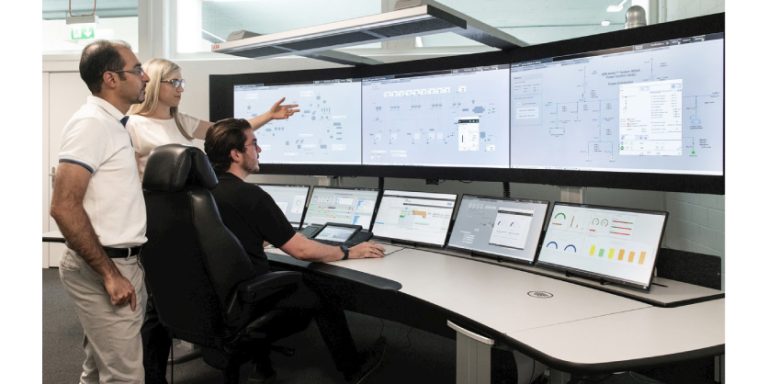ABB Robotics Teams with Innovative Tech Start-Up to Deliver Sustainable and Affordable Housing
July 18, 2024
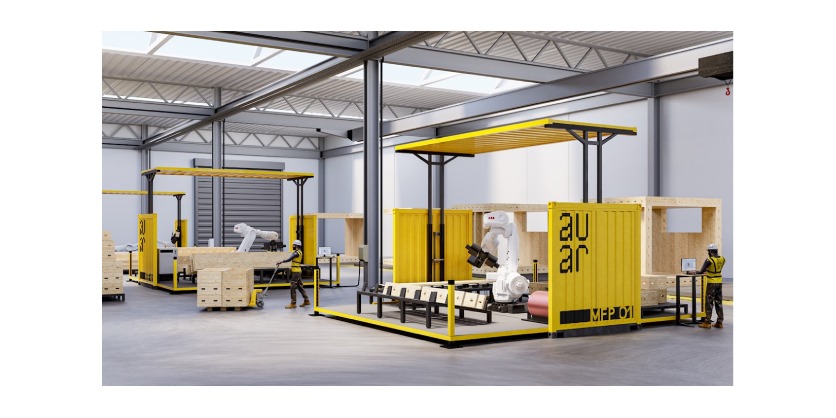
- Transformative technology uses robotic micro-factories to build affordable, sustainable homes
- 95% of construction firms say sustainability is important and over a third recognize that robots can help reduce waste and improve productivity
- Automated, modular construction also addresses widespread industry skills shortages and quality
ABB Robotics announced it is collaborating with UK-based tech start-up AUAR, to advance the use of robotic micro-factories to build affordable, sustainable low energy timber homes.
AUAR’s transformative approach to integrating robotic automation into the building process will tackle skills shortages, boost sustainability, and improve health and safety by deploying robots in a global network of local micro-factories. These micro-factories will construct energy-efficient, affordable buildings from sheet timber. AUAR reports today that it has completed a £2.6M seed round led by deep-tech and AI fund Miles Ahead, alongside ABB Robotics & Automation Ventures and several other investors.
“The increasing capabilities of robots enabled by vision and AI, coupled with their inherent speed, flexibility and consistency, makes them the ideal solution for meeting the growing need for affordable, high quality, sustainable housing,” said Craig McDonnell, Managing Director Business Line Industries, ABB Robotics. “With 95 percent* of building firms in our recent market survey describing sustainability as ‘important’ or ‘very important’ to their businesses, and 38 percent* seeing robots as a way of reducing waste, our collaboration with AUAR opens new possibilities for homebuilders to deliver affordable sustainable homes at scale.”
ABB is already heavily involved in helping construction companies automate their processes. ABB robots are widely used in a range of modular assembly and 3D printing building projects worldwide, as well as academic projects researching new ways to integrate robotic automation into construction.
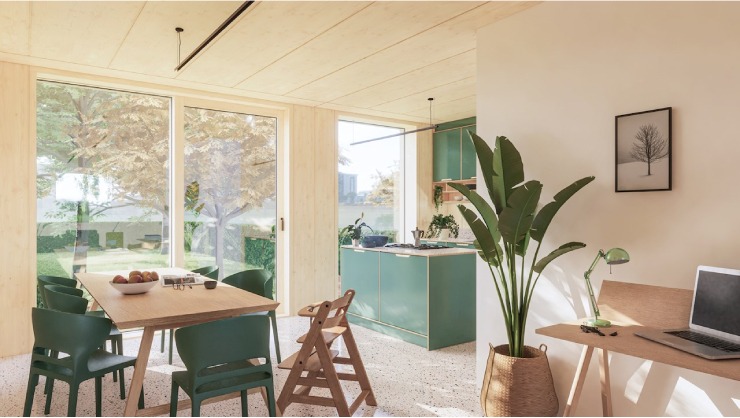
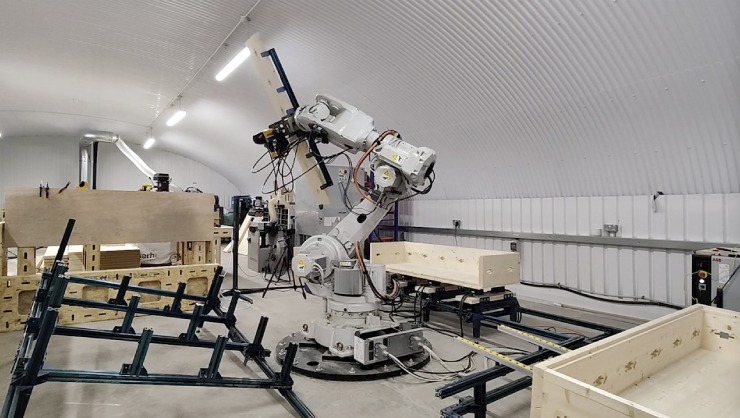
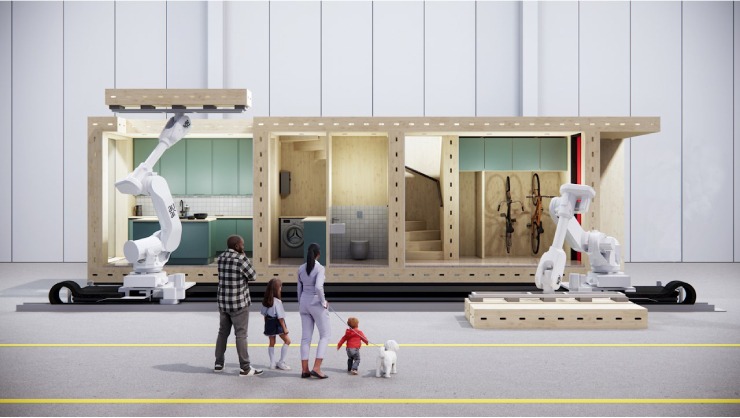
The collaboration with AUAR follows the announcement by ABB working with German management consulting firm, Porsche Consulting, to develop innovative new practices in modular housing manufacture.
AUAR is the brainchild of two architects, Mollie Claypool (CEO) and Gilles Retsin (CTO/Chief Architect) who have worked for over 10 years on robotics, automation, construction, and architecture. During that time, they have relied extensively on support from ABB Robotics to realize their vision.
The relationship has already seen ABB Robotics win the prize for ‘Best Use of Robotics or Automation in Construction’ at the 2023 Robotics & Automation Awards.
AUAR’s automated micro-factory approach provides a solution to many of the challenges facing building companies, including supply chain issues, project delivery and quality and skills shortages.
Conventional buildings consist of thousands of different components shipped from around the world, making it almost impossible to automate construction. In contrast, AUAR’s goal is to work with one type of material and one type of machine to dramatically simplify the supply chain.
The production process uses standard sheets of timber. A robot cuts the sheets into components and assembles them into units that are transported to site, enabling complete customized homes to be built in a matter of weeks.
While many of the assembly tasks are automated, AUAR’s approach supports local jobs by promoting the use of micro-factories close to construction sites, where local contractors and suppliers can coordinate delivery.
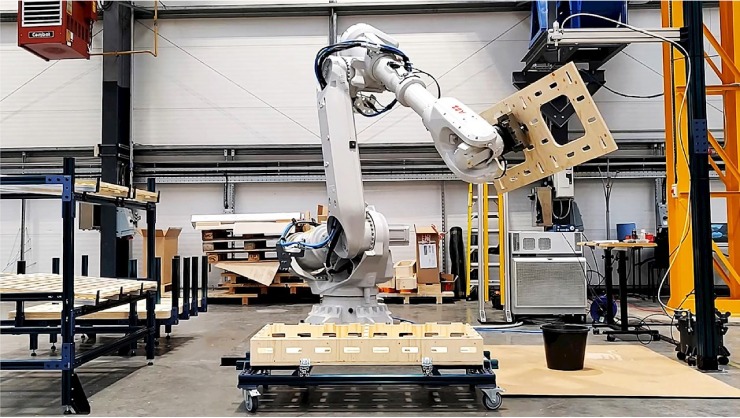
The micro-factory approach is flexible enough to meet whatever each market demands. Each facility can be scaled to reflect local needs, with the ability to ramp up production by adding modular robot cells.
“With the focus on the dual needs of building more affordable homes and minimizing the environmental footprint of buildings throughout their lifetime, automated modular construction presents a great opportunity to rethink the way that the buildings are constructed,” added McDonnell. “Our collaborations with AUAR and Porsche Consulting mark an exciting step in our efforts to accelerate the use of robotic automation in the construction industry to help address its challenges and deliver the sustainable buildings of the future.”
*ABB Robotics global market survey, 2023
Related Story
Smart Buildings: the Smart Choice for Sustainability
The sustainability benefits of smart homes are well publicised and those of us who have digital power outlets, smart thermostats and automatic lights know firsthand about the energy and cost savings. However, much less discussed is the broader adoption of smart building technology by companies and industries. With buildings generating nearly 30 percent of all greenhouse gas emissions,1 it would be impossible to ignore how quickly our path to net zero would expedite if entire sectors adopted them.


